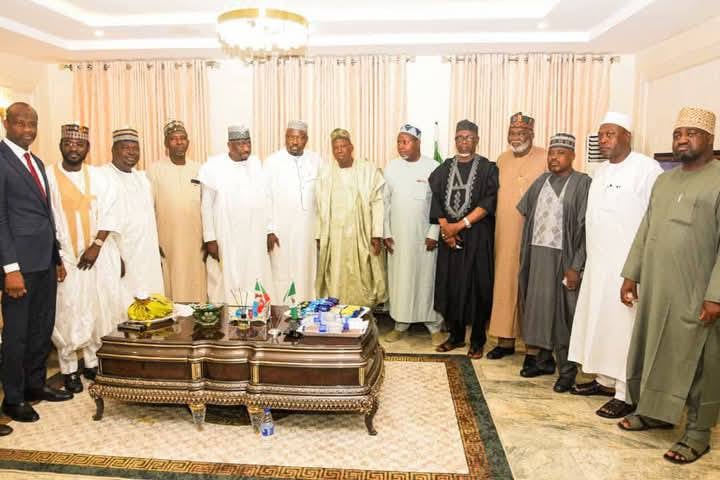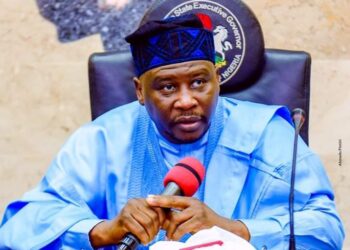Dalung Claims Popularity for Coalition Aiming to Unseat Tinubu in 2027 Among Poor Nigerians

Solomon Dalung, the former Minister of Youths and Sports Development, has emerged as a prominent voice within a political coalition actively working to unseat President Bola Ahmed Tinubu in Nigeria's 2027 general election. In an extensive interview, Dalung articulated a scathing assessment of Tinubu's two-year tenure, asserting that the current administration has profoundly failed Nigerians and must be voted out. He expressed significant disappointment, noting that given Tinubu's eight years as Lagos State Governor, Nigerians had exceptionally high expectations, viewing him as a "Lagos miracle maker."
Dalung pinpointed the initial removal of the fuel subsidy as a critical misstep, labeling it "reckless" due to the absence of a fully constituted government to manage the fallout. He criticized the statement "subsidy is gone" as an act of "cowardice" rather than courage, arguing that a truly brave leader would have subjected such a significant policy to rigorous scrutiny and public debate. According to Dalung, this initial decision set the stage for the widespread hardship, including hunger, poverty, and malnutrition, that Nigerians currently endure, leading him to conclude that Tinubu's performance has been "far below expectations and disappointing."
Addressing the numerous endorsements President Tinubu has received, particularly from the All Progressives Congress (APC) leadership and National Assembly members, Dalung dismissed them as politically meaningless. Drawing on a past prophecy by Adams Oshiomhole about sinners finding forgiveness in the APC, Dalung characterized these endorsements as a "conclave of sinners"—individuals who have committed "heinous crimes against the Nigerian people" and are now seeking political sanctuary, rather than genuine support for Tinubu. He argued that APC endorsements hold little value as the President's votes came from Nigerians, not solely APC members.
Dalung also commented on the recent defections of state governors, such as those from Delta and Akwa Ibom, to the APC. He emphatically stated that while political beneficiaries may defect, the people do not necessarily follow. Citing the strong condemnation from women in a former Delta governor's ancestral home, he highlighted that the populace sees these defections as self-serving acts, not reflective of the people's will. He predicted that such defections would only "compound the situation" within the APC, potentially leading to an "implosion," especially as Tinubu has, in Dalung's view, "drawn a battle line between him and the masses by weaponising hunger, poverty and hardship," displaying no remorse while his family lives lavishly.
The emerging coalition of politicians, including figures like Atiku and El-Rufai, aiming for the 2027 elections, was a central theme of Dalung's discussion. He described this as a unique coalition, distinct from previous attempts since the First Republic, primarily because the President has become "the enemy of the poor." The coalition, he explained, is providing "succor" and "hope" to the suffering masses by organizing to offer a viable alternative to the current administration. Dalung noted the coalition's immense popularity among the common people, believing they would support whoever the coalition ultimately fields to eliminate the present political reality. He famously likened the coalition to "Portipha and Pontius Pilate" uniting for the singular purpose of crucifying Jesus, illustrating how diverse political elements are putting aside their differences to oppose Tinubu.
Regarding Prince Adewale Adebayo's position within the Social Democratic Party (SDP) and his presidential aspirations for 2027, Dalung expressed confidence in Adebayo's political charisma and consistent media campaign against the government's unpopular policies. He asserted that Adebayo is a "force to deal with" and indispensable within the SDP, having uniquely sustained the party's image since 2023. Dalung emphasized Adebayo's patriotism and commitment to reintroducing "good governance, justice, the rule of law, equity and fairness" into Nigeria's governance structure, indicating his willingness to be a team player even if he doesn't emerge as the candidate through a fair process. Dalung confirmed that the SDP leadership has met with the coalition delegation, with details expected to be made public soon.
Furthermore, Dalung addressed Professor Pat Utomi's initiative to float a "shadow government." He defended this concept against accusations of treason, clarifying that its purpose is to serve as an alternative think-tank council. Comprising experts from various professions, this shadow government aims to "x-ray, analyse, monitor and criticise the propaganda being dished out every day by President Tinubu’s propaganda machine as government policies," offering Nigerians and foreign investors objective analysis and alternative policies. Dalung cited the Calabar Coastal Highway project as an example of a "bad policy" lacking consultation, resulting in uncompensated demolitions of properties, including those of Diasporans who had invested in Nigeria.
Finally, Dalung vehemently disagreed with the notion that the 10th National Assembly is merely a "rubber stamp" of the executive. Instead, he characterized them as a "band of choristers" for the President, exhibiting excessive excitement and even singing praises, humorously misinterpreting a song as "On your dollar we shall stand." He expressed concern that this Assembly might, through a simple voice vote, amend the constitution to appoint Tinubu as "life president," highlighting what he perceives as a dangerous level of subservience and lack of independent scrutiny, far beyond the typical definition of a rubber stamp.











